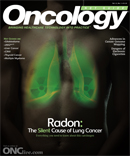Publication
Article
Electronic Cigarettes: Another Potentially Dangerous Product Sold on the Internet
Author(s):
The Internet has revolutionized how information is disseminated and goods are transferred, which has had a profound effect on the medical world.
The Internet has revolutionized how information is disseminated and goods are transferred, which has had a profound effect on the medical world. While the Internet is a valuable resource, its largely unregulated terrain allows a Website maintained by an individual selling an unproven health product, such as a “novel cancer treatment” from his or her garage, whether in the United States or abroad, to appear as legitimate as the Website of an esteemed medical organization, such as the American Cancer Society. On the Web, individuals can make modest or extraordinary claims of medical utility without proof or by fabricating data to sell their potentially dangerous products, such as electronic cigarettes, with few if any ramifications.
Electronic cigarettes, also known as e-cigarettes, are battery-powered devices that resemble cigarettes and are designed to deliver a measured amount of nicotine to the user, along with a variety of other pleasurable chemicals, if desired. These chemicals, described as “flavorings,” include offerings such as chocolate and bubble gum, which may be appealing to teenagers and even younger children (www.ncbi.nlm.nih.gov/pubmed/19724035). Although e-cigarettes have been available since 2003, they have been gaining popularity over the past few years. It is estimated that there are currently 300,000 e-cigarette users and that 1 million people have tried them (http://en.wikipedia.org/wiki/Electronic_cigarettes).
On the Internet, e-cigarettes have been marketed as a method for smoking cessation, and an online survey revealed that users thought they were a healthy alternative to smoking traditional cigarettes; however, the FDA has not approved these devices for this purpose. In an interesting twist, e-cigarettes have also been touted as a workaround to the “smoke-free” zones because individuals are not restricted from using these devices in such areas.
In 2009, the FDA attempted to halt the importation and sale of e-cigarettes in the United States after an analysis of a large number of seized shipments found these devices to contain ethylene glycol, a chemical used in antifreeze, as well as a variety of other known carcinogens. The actual content of nicotine also varied within the same type of device, suggesting a user would not know the relative amount of inhaled nicotine from one “cigarette” to the next, and those that were claimed to be nicotine-free often were not. Unfortunately, the FDA’s effort to control these potentially dangerous devices has recently been thwarted. Judge Richard J. Leon of Federal District Court in Washington granted a temporary injunction against the FDA’s attempt to block the importation of e-cigarettes from China, saying the FDA overstepped its authority and noted these devices to be “the functional equivalent of traditional cigarettes,” rather than a combination drug-device that should be subject to more stringent regulation (http://tinyurl.com/ydpgarq).
The inability of the FDA to prevent the sale and distribution of these completely unregulated devices is particularly worrisome and noteworthy when one considers Congress recently granted the agency historic oversight of the tobacco industry, an effort specifically designed to enhance the public’s health and welfare (www.ncbi.nlm.nih.gov/pubmed/19809027). Judge Leon noted that while the FDA won’t be able to prevent these products from being imported, its new tobacco division will be able to regulate the marketing claims made by e-cigarette manufacturers in the same way that traditional tobacco products will be regulated (http://tinyurl.bom/x9kqdd4). Given the current climate, it is highly doubtful that regulatory authorities will be able to prevent these types of potentially dangerous products from reaching an unsuspecting public. It is also reasonable to assume that individuals using the Internet for personal gain will continue to use this inexpensive and efficient vehicle to sell their hazardous wares.
Medical professionals can play an essential role in safeguarding the public from dangerous devices such as e-cigarettes by educating their patients and the public on the potential dangers associated with unregulated health- related products sold via the Internet. One strategy is to remind patients that if they hear a health-related claim, discover a medical product on the Internet that appears to be “too good to be true,” or they are considering consuming one of these unregulated products, to fi rst discuss this decision with a medical professional so that they can be certain that this is the “right thing” for them to do.
Maurie Markman, MD, is editor-in-chief of Oncology Net Guide and Vice President of Clinical Research for University of Texas MD Anderson Cancer Center in Houston, Texas.
